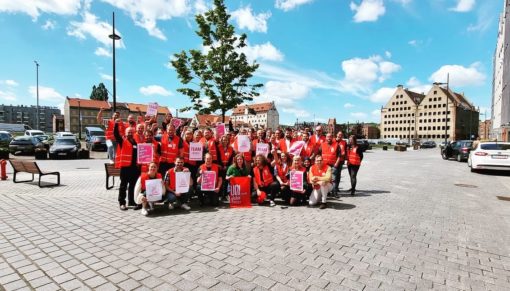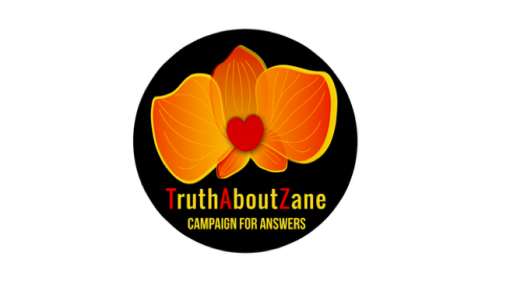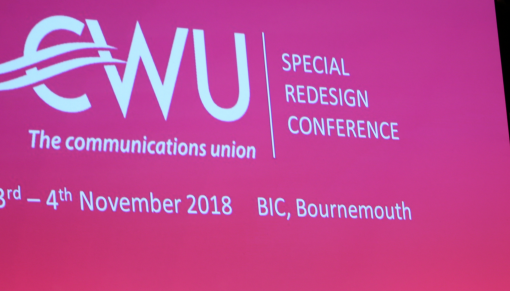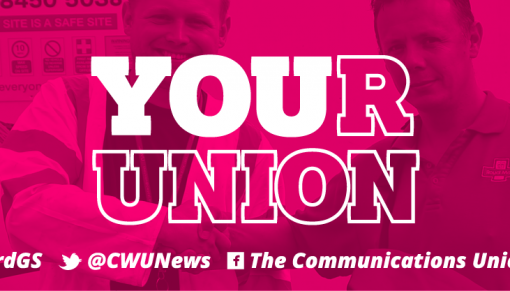Compare and Contrast – why what the European TUC is doing matters here
October 15 2015A new ETUC/Employer initiative on youth unemployment shouldn’t be dismissed as just luke-warm words. It shows why the new campaign launched by TULO (the trade union-Labour party Organisation) to highlight employment rights made under EU law is timely and necessary.
 In sign of how the industrial framework is so different on continental Europe when compared to here in the UK, last week there was a press conference to launch a framework of action document relating to youth unemployment. It is athttp://www.etuc.org/a/11280. The subheading of the document explicitly said that social dialogue-in other words business and unions working together-was the primary means of providing a solution to reduce youth unemployment.
In sign of how the industrial framework is so different on continental Europe when compared to here in the UK, last week there was a press conference to launch a framework of action document relating to youth unemployment. It is athttp://www.etuc.org/a/11280. The subheading of the document explicitly said that social dialogue-in other words business and unions working together-was the primary means of providing a solution to reduce youth unemployment.
Leading the way on this initiative was, as you might expect, the European TUC-or ETUC. But they were joined by three employers’ organisations representing public services, small and medium-sized enterprises and larger companies.
The European TUC issued a press statement (which included the four quotes reproduced below) on the event which provides a useful summary of the views of the stakeholder organisations.
 There was no mistaking the importance of the issue to these four organisations. “With youth unemployment rates currently at 24.4% in the euro area and 23.5% in the EU27, urgent and determined action is needed. Europe cannot afford such a waste of talent” was the opening to the press statement.
There was no mistaking the importance of the issue to these four organisations. “With youth unemployment rates currently at 24.4% in the euro area and 23.5% in the EU27, urgent and determined action is needed. Europe cannot afford such a waste of talent” was the opening to the press statement.
It went on to say: “This Framework of Actions is the first priority of the European Social Dialogue Work Programme for 2012-2014. With it, the European social partners aim to promote solutions to reduce youth unemployment. They call on national social partners, public authorities and other stakeholders to act together and achieve concrete progress in favour of youth employment.
A multi-pronged approach is needed to foster dynamic, open and mobile labour markets for young people with measures and appropriate resources focusing on the creation of more and better jobs, high quality learning outcomes, and better match between skills supply and demand, including through the spread of work-based learning across Europe.
This Framework of Actions is based on existing and new practices linked to the four priorities identified: learning, transition, employment and entrepreneurship. The European social partners aim to promote the most effective initiatives identified across Europe that could be used as inspiration for designing solutions by national social partners in their respective contexts. Recommendations to other relevant factors such as the EU institutions and Member States are also included.”
In other words, invest in training and development, seeking out the best models of industrial translation and employ them more widely. As the stakeholders themselves say-and who could disagree with them-“more and better jobs, high quality learning outcomes.”
Bernadette Sgol, ETUC General Secretary said: “ETUC rejects the idea of a sacrificed, lost generation of young people. Public authorities and social partners must assume their responsibilities and address the fundamental concerns of this group. With this framework of actions on youth employment, social partners are committing themselves to take urgent action and recommend concrete measures to the other stakeholders.”
You would expect a leading trade unionist to say these things. But what followed from her employer aced counterparts is perhaps a little more surprising :
Markus J. Beyrer, BUSINESSEUROPE Director General said “Immediate action is needed to support young people in their search for a first job. Employers are willing to contribute to efforts made to offer work, apprenticeship places or help young people to start their own enterprise. But our capacity to modernise European education and training systems and labour markets to create more jobs and equip young people with the right skills will make a difference if we want lasting solutions. This is why BUSINESSEUROPE (my note – a sort of CBI for Europe) and its members engaged in this framework of actions.
Valeria Ronzitti, General Secretary, European Centre of Employers and Enterprises providing Public services (CEEP) said: “Youth employment is one of Europe’s most pressing challenges. The scope of the Framework of Actions demonstrates well the large amount of areas where efforts need to be made by all actors. In this respect, public service employers face their own specific challenges and opportunities when it comes to fostering youth employment and we welcome that the Framework of Actions addresses many of these vital issues. Considering the gravity of the situation it is of utmost importance to ensure an effective and comprehensive follow up of the Framework of Actions, and public service employers are fully committed to achieve this.
Liliane Volozinskis, Director for Social Affairs of UEAPME (the small and medium enterprise organisation) said: “The current level of youth unemployment is unbearable for the economy and the whole society. At the same time Crafts and SMEs, the main source of job creation in Europe despite the crisis, deplore the lack of qualified young workers and growing skills mismatches. This results from long-standing labour market structural problems and a more recent lack of jobs due to the crisis. The diversity of situation in the Member States on youth employment requires in-depth analysis and to act swiftly on the identified main weaknesses along the four priorities defined in the Framework of actions and a national coordinated strategy between social partners, public authorities and various stakeholders. For being fully effective such measures should be incentivised by European financial means such as the 6 billion of the Youth Employment Initiative and growth enhancing measures“.
Under the framework, stakeholders will report back annually over three years.
 I think that most readers would welcome the framework and would welcome collaborative working with employers in pursuit of lowering youth unemployment. But I also think most readers would be justifiably sceptical about the extent to which the framework on its own will make a decisive difference. I would caution against excessive cynicism because the willingness and ability for social dialogue to take place and to produce a consensus in the way that this process is done using is a fundamental building block to achieve other things.
I think that most readers would welcome the framework and would welcome collaborative working with employers in pursuit of lowering youth unemployment. But I also think most readers would be justifiably sceptical about the extent to which the framework on its own will make a decisive difference. I would caution against excessive cynicism because the willingness and ability for social dialogue to take place and to produce a consensus in the way that this process is done using is a fundamental building block to achieve other things.
I’m equally sure that many readers will believe that the constraints on social dialogue mean that its value is compromised. I have a lot of sympathy for this but I think we need to recognise just how far to the right the UK has moved since 2010. This continental Europeanmodel seems attractive when contrasted with current Conservative industrial relations and employment law philosophy.
It is important to remember the differences between the UK and Europe when David Cameron talks about his plans for an EU for renegotiation and referendum which seems to be rapidly developing all other political issues. As the Trade Union-Labour Party organisation TULO point it out are in a campaign just launched, a primary objective of Cameron’s renegotiation is a repeal of employment protection legislation made at the European level.
In this sense the framework agreement launched by the ETUC and employer organisations last week is neither wishful thinking nor something that is happening far away. There is a direct link to the issues we are dealing with here and now.



























































